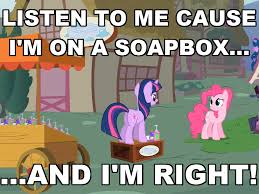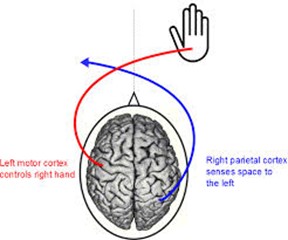Self-care is the latest buzzword. Because if you cannot take care of yourself, how can you care of others? If you’re a parent, caregiver or in a helping profession, it is imperative to take care of yourself the best way you know how.
If you don’t, it’s only a matter of time before it catches up to you.
This 24/7 non-stop crazy world will suck you down a deep dark hole if you let it. Work, career, getting ahead, providing for the family, raising kids, or caring for others, it’s easy to put others’ needs ahead of your own.
And there’s nothing wrong with that because it’s what we should do most of the time. But when you empty out your tank, it pays to put something in. That’s where self-care comes in.
What is Self-Care?
The World Health Organization (WHO) defines self-care as: “the ability of individuals, families, and communities to promote health, prevent disease, maintain health, and to cope with illness and disability with or without the support of a healthcare provider.” (1)
And here’s another one.
“The self-initiated behavior that people choose to incorporate to promote good health and general well-being.” BMC Palliative Care in April 2018.
Notice the word self-initiated. It’s on you.
Now, like most things you can deep dive into branches into self-care but let’s take the view from 10,000 ft.
This view of self-care is everything related to staying healthy (mentally and physically) which includes hygiene, nutrition, exercise and seeking medical care if needed. This includes all the steps you’ll take to manage stress and to take care of your own health and well-being.
Self-care is different from person to person. Me, I like to mediate and be alone with my thoughts because this relaxes me. You might like to read, move, hang out with friends or dance.
Whatever it is, self-care requires checking in and asking yourself how you’re doing and how your body is feeling. You will adopt different self-care practices than others, and your self-care needs may change over time.
But back to the bigger picture. You need to do it, or else the world will do it for you.
What Self-Care Isn’t
Don’t get the wrong idea with what I’m about to say.
Doing stuff that isn’t good for you but feels good is something a lot of us do. But there is a big difference between eating a carton of ice cream because you feel you deserve it and getting smashed to numb the pain. These are maladaptive behaviors or habits that some of us have.
They might feel good but they’re not healthy and they’re not self-care. Just don’t get the two confused.
I’m not saying you shouldn’t engage in unhealthy behaviors that feel good. But don’t classify them as self-care to justify it. Instead, try to limit those behaviors particularly when health is an issue for you.
Okay, stepping down from the soap box now.

Moving Is Self-Care
I’ve lost count of the amount of times my clients have felt like crap, stressed, in pain or overwhelmed before their session started. But when they start moving and the weights start flying, it’s amazing how much better they feel.
You know why this is? One reason is the act of contralateral movement (opposite arm, opposite leg). This movement pattern stimulates brain and nervous system development which is due to the firing neural pathways in the right and left-brain hemispheres simultaneously.
Any time you cross midline, you’re re-integrating your brain and nervous system and re-organizing mind-body connections. This is one of the reasons why cardio is successful in treating depression or you feel refreshed after taking a walk.

Remember the last time you were stressed, or you forgot where you left your keys? And then you got up, moved around, and BOOM the stress is less and then you remember where you left your keys. That’s the power of contralateral movement.
Other benefits include
- Stabilizes your walking gait coordination – builds core strength
- Energizes your body and calms your mind – releases tension and stress
- Improves your eye teaming skills – essential for focus, reading, and writing (2)
The Ultimate Self Care Act Is Exercise
There’s no doubt I’m biased but I think exercise is the ultimate self-care act. Besides all the stuff it will do for your appearance, it’s nothing compared to what it does for our insides.
Exercise can increase your life expectancy, improve sleep quality, reduce heart disease and will dramatically improve your quality of life.
What type of exercise you do is immaterial. Whether it’s lifting weights, running, yoga, martial arts, dancing or walking, all movement is good movement. All you must do is engage in whatever floats your boat for the rest of your life.
But self-care is mental as well as physical because the mind and body are not separate things. They’re one thing, joined at the hip or at the brain stem, so to speak.
Exercise helps to reduce mild to moderate depression, dementia, anxiety, and even reduces cognitive issues in schizophrenia. Plus, it keeps us sharp as we age.
Regular exercise increases the volume of certain brain regions particularly the hippocampus through better blood supply which improves overall brain health by improving the delivery of oxygen and other nutrients. (3)
The Hippocampus is an area of the brain that’s involved in memory, emotion regulation, learning and plays a crucial role in mental health. There is evidence to suggest many mental health conditions are associated with reduced growth and development of nervous tissue in the hippocampus
And there will be times when life gets on top of you, unforeseen circumstances happen and what’s inside the refrigerator is more appealing than going to the gym to get your sweat on. But that’s okay but remember a little self-care will go a long way when life is emptying your tank.
Wrapping Up
There’s lots of self-care acts you can do, but nothing covers all the bases like exercise does. When life is emptying your tank and you have nothing left to give, strapping on your training shoes is the best form of-self-care.
Plus, it gives you more flex appeal.
If you need the ultimate self-care exercise program to get back on track, click here.
6 Comments
Sarah Mclean
Thanks, I really enjoyed reading this article
Balance Guy Training
You’re welcome sis. I hope it helps.
Monica Arredondo
Another great article! Thanks for sharing your knowledge!
6 Best Strength Exercises For Beginners - Balance Guy Training
[…] know strength training improves you inside and out but if you’re a training beginner, where do you begin? With a wealth of advice on the internet […]
Make A Commitment - Balance Guy Training
[…] dedicated means applying yourself to the task at hand and an obligation that restricts freedom; this is tricky. Let’s say that once […]
Crossing The Line - Balance Guy Training
[…] When someone ‘invades” your personal space. […]